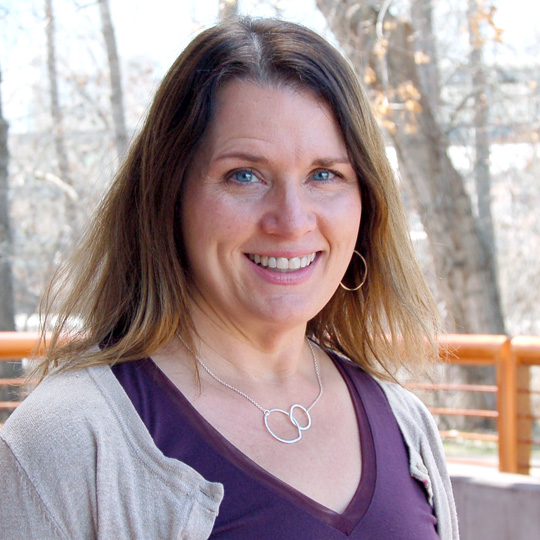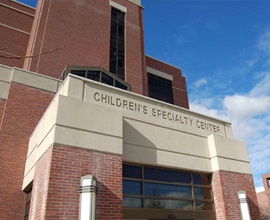New Pediatric Bone Marrow Transplant Program Keeps Families Closer to Home

Dr. Nathan Meeker knows how pediatric cancer can impact a family.
That’s why the pediatric oncologist rallied to get a pediatric bone marrow transplant program in place at St. Luke’s after he joined St. Luke’s Mountain States Tumor Institute six years ago.
“I literally had families begging me to bring it here because of the disruption (pediatric cancer) causes,” Dr. Meeker said.
The wait ended this year, and in May, when he was 9 months old, Tate Fontaine became the first patient to receive a pediatric bone marrow transplant at St. Luke’s. Without the Boise option, the Meridian family would have been forced to seek treatment in Salt Lake City, Portland or Seattle.
The transplant itself only takes about 30 minutes to complete, but because of the other steps involved, it can take several months to complete the entire process. When the procedure is done in another city, it can mean putting jobs on hold or losing jobs completely, taking children out of school, separating the family and trying to financially manage two households.
Without the opportunity to have the transplant in Boise, Jet and Patti Fontaine would have been forced to make difficult choices. In addition to Tate, the Fontaines also have 10-year-old Aubriana and 14-year old-Payton.
The most likely scenario: Patti would have quit her job as a pharmacy technician and moved to Utah with Tate, while Jet would stay in Meridian with their two older children.
It would have also meant losing a strong support system of family and friends, and it would have caused an additional strain on the family finances.
“Being here was everything,” Patti said.

Tate was diagnosed with pediatric neuroblastoma when he was 3 months old. St. Luke’s MSTI sees between 50 and 75 new pediatric cancer cases each year, but neuroblastoma is rare. According to the American Cancer Society, about 650 children in the United States are diagnosed with neuroblastoma each year.
For Tate, the best treatment option was also one that had the potential to cause the most harm, because of the powerful chemotherapy it would require. A bone marrow transplant enabled Tate to receive a chemotherapy treatment powerful enough to kill the cancer cells without destroying his healthy cells in the process.
“It is a matter of how much power you can use to treat the cancer without harming the patient,” Dr. Meeker explained. “This is a very high dose of treatment.”
Dr. Meeker was eager to see a pediatric bone marrow program come to Boise, but the valley’s population wasn’t at a level to merit supporting such a program when he first joined St. Luke’s six years ago. The valley’s population base is now large enough, and based on previous referrals, Dr. Meeker expects the new transplant program to have between three and five pediatric patients each year. An adult bone marrow transplant program has been in place at MSTI since the late 1990s, and about 30 transplants are done each year.
Tate received an autologous stem cell transplant, meaning his own stem cells were collected and stored before being reintroduced into his body.
This first pediatric bone marrow transplant turned out to be one of the most complicated cases Dr. Meeker believes the team will ever face. Tate’s young age made the case challenging, because his small body limited the stem cells that could be collected at one time.
“We never questioned the level of care we would receive here because we were so comfortable with the doctors and nurses,” Jet Fontaine said.
While the procedure is new to Boise, it wasn’t new to Dr. Meeker and others. Prior to joining St. Luke’s, Dr. Meeker worked at Primary Children’s Hospital and was part of the pediatric bone marrow transplant team. Pediatric oncologist Dr. Matthew Hansen worked at Cincinnati Children’s Hospital Medical Center and did bone marrow transplants for several years before joining St. Luke’s.
Although Dr. Meeker believes Tate is doing “remarkably well” and shows no sign of cancer, the little boy will continue to be monitored throughout his childhood.
“We are extremely grateful they chose us to be the first family,” Jet Fontaine said.
About The Author

Chereen Langrill was formerly a communications coordinator for St. Luke’s Health System.


